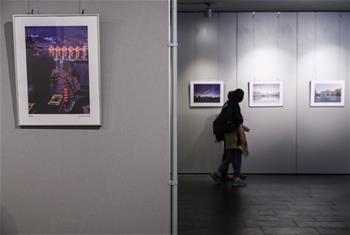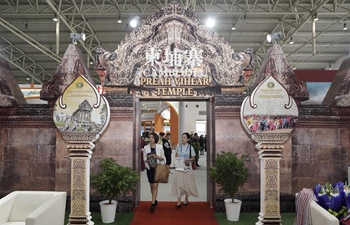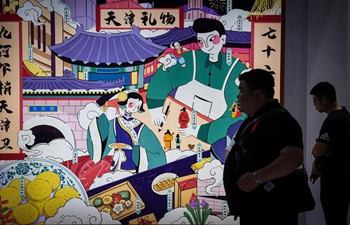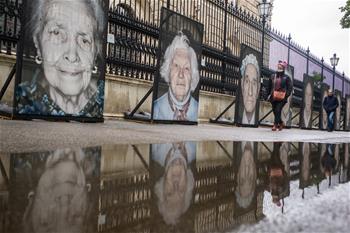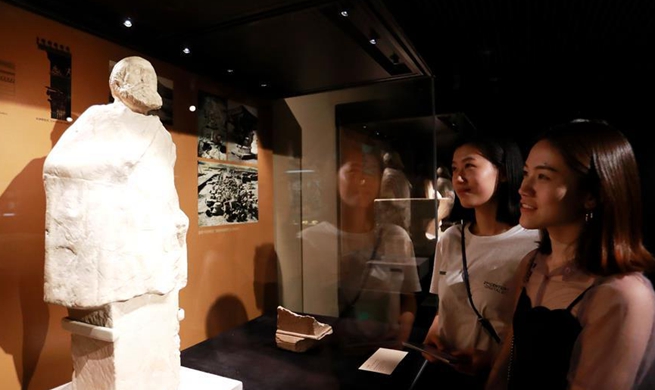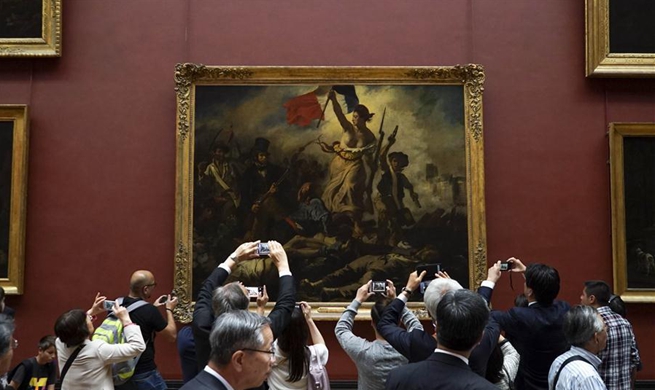BEIJING, May 18 (Xinhua) -- Thirteen years ago, when Hassan Rezaei was selling carpets at his store in Isfahan, an ancient Iranian city long noted for its fine carpets, he met a Chinese girl who would change his life.
The girl, who later became his wife, showed strong interest in Persian culture and Iranian carpets, a cultural heritage with a history of over 2,500 years. Before leaving, she invited Rezaei to visit China.
"Though China is far away, I could not stop missing her and wanted to see her," Rezaei said.
During his trip to China, Rezaei visited the Great Wall, the Palace Museum, and other acclaimed attractions and surprisingly found that China and his home country had a lot in common.
"For example, the phoenix is a common pattern on Iranian carpets and it is also deeply rooted in Chinese culture as an auspicious sign. The silk used in our carpets also came from China through the Silk Road," Rezaei said.
After coming home, Rezaei quickly decided to turn his local business to his younger brother and opened a new store in Beijing.
Iranian carpets are usually made of wool or silk, ranging from thousands of yuan to up to 2 million yuan. The fancy price has scared away many Chinese customers and the business was bleak in the beginning. Local customers also know little about how to clean the carpets.
Rezaei realized that besides the similarities, cultural differences were to blame for the poor sale of his carpets.
"Iranians grew up on the carpets, the first thing when we move to a new house is to move the carpets," Rezaei said. "When women get married in Iran, they bring carpets from their own home to their husbands' family."
"In Iran, the first furniture we buy for a new home is a carpet; while in China, carpets are only an optional decoration not a must," Rezaei said.
So Rezaei decided to begin with culture. He changed the name of his store to "Persian cultural arts center" and decorated the shop as a traditional Iranian house.
When customers come in, he and his partner Arastou Pourheydar become guides to Persian culture.
"Many of the carpets were made by women in villages, and these carpet masters put everything into the carpets. Maybe it's a cloud, maybe it's a tree by a house," said Pourheydar. "It may take years to finish a carpet, and during that period many things may occur, such as the arrival of a new family member, or the death of a loved one."
Now Rezaei's store has been recognized by more people and many customers have become interested in Persian culture and made plans to visit Iran.
"China and Iran have been exchanging with each other for thousands of years, and we should keep enhancing mutual understanding," Rezaei said. "I hope my store can become a cultural bridge between the two."




